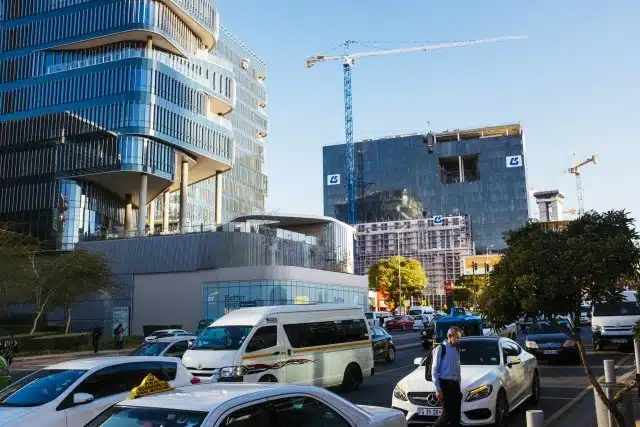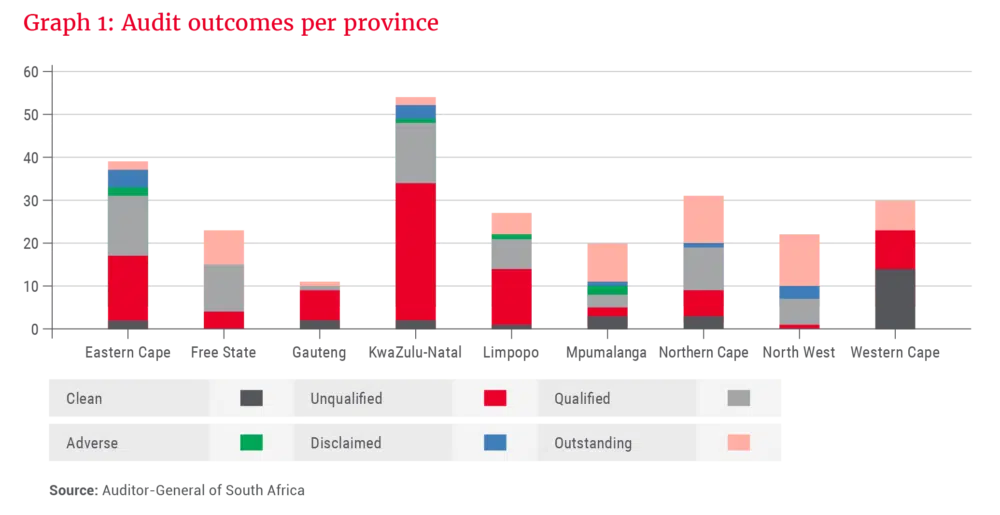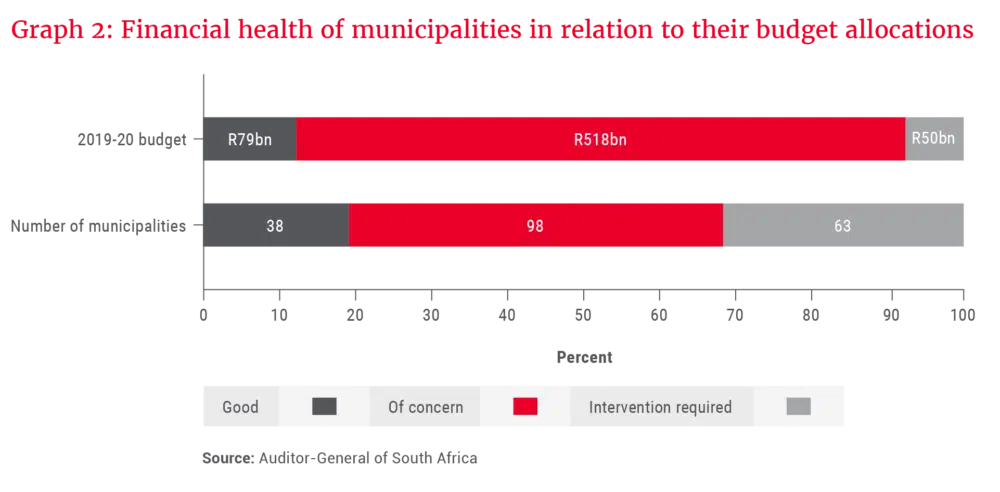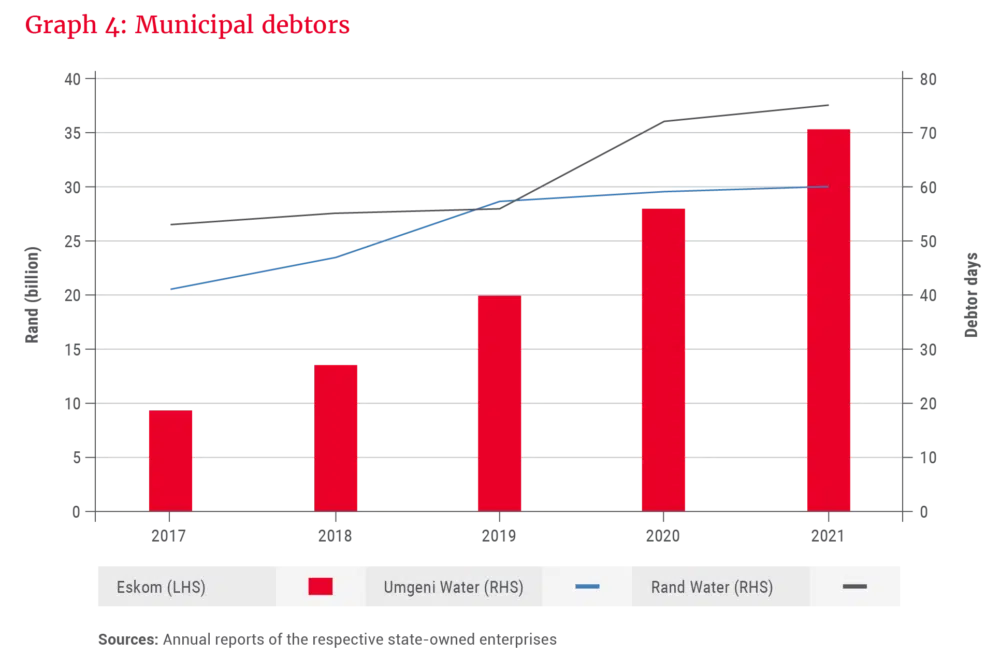
South Africa can forget about economic growth until municipalities change
Lots of towns are stopping working to fulfill the fundamental requirements of their constituents, consisting of supplying appropriate access to water, sanitation, real estate, and electrical power, states Londa Nxumalo, portfolio supervisor at Allan Gray.
As a result, faith in the system has actually worn down, as shown by the low citizen turnout in the November 2021 city government elections, Nxumalo stated.
Former financing minister Tito Mboweni, at a current PSG yearly conference, worried that without repairing inefficient towns, unsafe roadways, and minimizing dependence on Eskom, South Africa can ignore significant financial development.
His remarks come as the need for community services boosts. According to the State of South African Cities Report, the nation is experiencing quick urbanisation, with over two-thirds (67%) of the population living in city locations.
The report kept in mind that by 2050, South Africa’s population is forecasted to grow by an extra 19-24 million individuals, the majority of whom will be residing in cities and towns.
In between 2011 and 2019, there was a 39% boost in the variety of families in the City of Joburg local location alone, with more than 20% being casual real estate.
” Although the down pattern in local health has actually been well recorded in journalism, the large level of the rot is still disconcerting: uncondoned, irregular, unauthorised, unsuccessful and inefficient expense totaled up to a tremendous R189 billion,” stated Allan Gray.
Community monetary distress
The auditor-general of South Africa minced no words in the current report on city government audit results. Just 28% of towns sent quality financials for audit functions, and simply 11% got tidy audits. The Free State and North West provinces did not have a single tidy audit in between them.
< img src="https://thepanda.co.za/wp-content/uploads/2022/05/south-africa-can-forget-about-economic-growth-until-municipalities-change_627e526df4097.png.webp" alt="" width =" 1000 "height =" 515" data-aspectratio =" 1000/515"/ > The report explains a death spiral: Rampant corruption and mismanagement at lots of towns lead to an absence of funds and progressively bad service shipment, the latter of which strengthens a culture of non-payment of community rates and service charge which, in turn, intensifies the monetary degeneration of the towns and more impacts service shipment.
< img src="https://thepanda.co.za/wp-content/uploads/2022/05/south-africa-can-forget-about-economic-growth-until-municipalities-change_627e526ec8f6f.png.webp" alt="" width =" 1000 "height =" 492" data-aspectratio=" 1000/492"/ >” Discouragingly, a lot of the concerns pestering towns have actually been raised by the auditor-general in previous years, however the particular mayors and councils have actually not attended to these. The absence of repercussions even more enhances bad behaviour and misbehavior. Ethical and responsible management is required to turn these towns around,” stated Allan Gray’s Nxumalo.
The fallout of stopping working towns does not just impact homeowners however financial institutions such as Eskom and small company owners, stated Allan Gray. The bearing on small companies– which count on timely payment for their survival and have actually been promoted as a vital source of tasks– is especially outright.
The quantity of community financial obligation owed to Eskom, and the debtor days exceptional of 2 of the big water energies, are revealed listed below. Towns comprise 42% of Eskom’s income, and local financial obligations have actually swollen to R35 billion.
This non-payment impacts the routine taxpayer straight: Bailouts from the fiscus to Eskom will have totaled up to R136.7 billion in between 2020 and 2022.
< img src="https://thepanda.co.za/wp-content/uploads/2022/05/south-africa-can-forget-about-economic-growth-until-municipalities-change_627e526f708b8.png.webp" alt =" "width =" 1000 "height =" 669" data-aspectratio="1000/669"/ >
What is the method forward? Nxumalo stated that for towns to see considerable modification, management from the top is required to set the tone. He included that if leaders are dishonest, have a neglect for sound governance and absence responsibility, it infiltrates to the remainder of the organisation and leads to a culture of bad efficiency and impunity.
” Many homeowners do not pay their reasonable share, while paying citizens naturally end up being disappointed when their hard-earned cash is being squandered or taken, and are lured to stop paying their community costs.”
This undoubtedly leads to community collapse. Undoubtedly, a variety of towns are currently considered to be inefficient, Allan Gray stated.
“Turning the circumstance around will need a fragile dance in between 2 groups: leaders, who should drive the modification, and homeowners, who need to pay their costs. One can not take place without the other, however the previous plainly leads the latter,” stated Nxumalo.
Previously this year, president Cyril Ramaphosa supplied even more information about the federal government’s prepared District Development Model and how it will be carried out to enhance the nation’s towns.
He worried that just 5% of towns are solvent which approximately 64 are inefficient due to bad governance, weak institutional capability, bad monetary management, corruption and political instability.
The District Development Model intends to enhance coordination in between nationwide, provincial and city governments, and in between federal government and its social partners, Ramaphosa stated.
The design sets out a long-lasting tactical structure to direct financial investment and service shipment in particular districts or cities. Ramaphosa kept in mind that they intend to create ingenious collaborations with neighborhoods, companies and other stakeholders to enhance and speed up the execution of essential advancement tasks.






